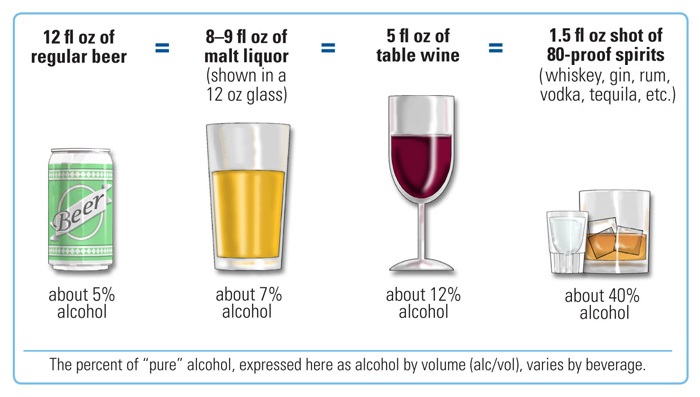Top Guidelines Of Liquor For Sale
Wiki Article
Liquor Glass Set Fundamentals Explained
Table of ContentsThe 2-Minute Rule for Liquor Glass SetWhat Does Liquor Ban Do?The Ultimate Guide To Liquor Glass SetFascination About Liquor Dispensers

A review of alcohol consumption in women from the Nurses’ Health Study I and II found the lowest death rates from any cause in women who drank smaller amounts of alcohol (about 1 drink per day) over four or more days rather than the same amount of alcohol taken in one or two days.
The American Heart Association concludes that 1-2 drinks a day for men and up to 1 drink a day for women is associated with a reduction in cardiovascular risk, without consistent evidence showing that wine offers greater benefits than other alcoholic beverages (Liquor). However, rather than focusing on alcohol intake alone, they advise implementing a healthful diet to substantially reduce cardiovascular risk.
Accessed 7/23/2018. The contents of this website are for educational purposes and are not intended to offer personal medical advice. You should seek the advice of your physician or other qualified health provider with any questions you may have regarding a medical condition. Never disregard professional medical advice or delay in seeking it because of something you have read on this website.
Liquor Can Be Fun For Everyone
Malt base is the least expensive base to use when producing an alcoholic beverage, both in terms of raw material cost and finished product taxation. However, this base is not known for its taste profile and can be difficult to mask its flavor during formulation. Spirit base is produced by the distillation of grains, fruit, or vegetables that have gone through alcoholic fermentation.The most common types of spirits are Grain Neutral Spirits (GNS), Vodka, Gin, Tequila, Rum, and Whiskey. GNS is the most commonly used spirit base. It is pure grain alcohol that is highly concentrated and purified by repeated distillation. liquor dispensers. GNS typically contain 95% ABV (or 190-proof) produced from grains such as corn, wheat, rye or barley.
RTDs produced with a spirit base are usually better tasting, but the base is more expensive than the others. There are also higher taxes for finished product both at the federal and state level. Wine is made from fermented grapes or other fruits. Other Than Standard (OTS) Wine is usually wine made from orange peels or grape skins that has gone through the process of filtration and proprietary treatment to have a neutral taste profile.
OTS regulations and taxes also vary widely from state to state. Each of these bases come with different factors that can impact cost of goods sold (COGS), taste, and labeling. For more information on which base is right for your next beverage, call Bev, Source today. To learn about an increasingly popular alcohol base taking the RTD world by storm, check out the next part of our series Alcohol Bases 101: Sugar Brews.
Indicators on Liquor And Wine You Need To Know
Liquor is often referred to as a “spirit” but have you ever wondered why? The origin of the word “spirit” is only one piece of the interesting history of alcohol, but it asks that we enter a different time: one where magic, belief, and religion were setting the groundwork for chemistry, science, and medicine.The process of making liquor was more complicated than use this link other fermented beverages, and at this time it was used for medicinal or religious purposes. Before anyone figured out how to distill liquor, beer and wine were typically made as beverages with very low alcoholic content compared to what we make today.
The origins of the word “spirit” are Latin. “Spiritus” means breath, and refers to both respiration and the wind. It’s also related to the Latin word “spirare” which means “to breathe.” Eventually, the word would come to refer to a person’s character or disposition. Then, in the Middle Ages, the word started being used to describe both the supernatural and the divine.
Liquor is distilled by heating a base alcohol liquid, (say, fermented wine). This extracts the alcohol from the liquid in the form of vapor, and it can then be you can look here cooled down and returned to liquid form. So distillation is actually the process of capturing the essence–or spirit–of the liquid, which at the time was the most valuable part: the alcohol.
The Liquor And Wine Diaries
We were likely making it long before we documented anything. But it is generally agreed upon by historians that fermentation and alcohol are so pervasive in the history of man that they most likely originated in several different places around the world, completely independent of each other. This is easy to believe when you consider that fermentation happens naturally when the skin of a fruit is split open.
But beer was much lower at about 1%. It wasn’t until much later that new technology allowed for more control over the fermentation process and therefore higher levels of alcohol (liquor and wine). But this lightly alcoholic beer still served a very important purpose: it was added to drinking water to kill harmful bacteria.
Report this wiki page